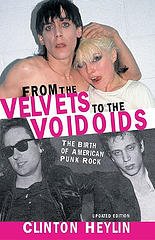Raises weapon to temple, questions existence...Random House Confident of Follow-Up to 'Cold Mountain'
By MOTOKO RICH
Four years after agreeing to sell his second novel to Random House for an advance of
more than $8 million, Charles Frazier, the author of the best-selling "Cold Mountain," has handed in the first half of his final manuscript, and is expected to turn in the remaining half next week.
The publishing industry is likely to watch the progress of Mr. Frazier's new book closely because at the time he signed the deal four years ago, his advance was considered extraordinary for a literary writer who had only written one previous book, although it was a huge best seller. With
just a one-page outline of the planned work, he sold the second novel in an auction, and in so doing left behind the editor, Elisabeth Schmitz of Grove/Atlantic, who had discovered and nurtured him to success.
At the time of the deal, Mr. Frazier was expected to deliver in time for a 2005 publication date. Kate Medina, executive editorial director at Random House and Mr. Frazier's current editor, said he had turned in an earlier manuscript and has been working on revisions until now.
The new novel, like "Cold Mountain," takes place in the 19th-century American South and is the story of
a young white man raised by Cherokee Indians who ends up representing them in Washington in their fight to preserve their land. According to Random House's fall catalog, which goes out to booksellers this week, the new novel, "Thirteen Moons," is also, like "Cold Mountain," an epic love story.
Random House is betting that the readers who made "Cold Mountain" such a hit will do it again for "Thirteen Moons." The first novel was a critical darling and a surprise reader favorite, selling 1.6 million copies in hardcover. There are 2.5 million paperback copies in print in the United States.
"Cold Mountain," which was also made into a movie starring Nicole Kidman and Jude Law, spent 61 weeks on the New York Times best-seller list in hardcover, and a total of 33 weeks on the paperback list. It also won the National Book Award for fiction. Carol Schneider, a Random House spokeswoman, said the initial print run for "Thirteen Moons," scheduled to go on sale Oct. 3, will be 750,000 copies. Just to cover the cost of the advance, the publisher — which will receive about half the $25.95 cover price of each book sold — will have to sell at least 625,000 copies. To cover marketing, printing and other overhead costs, it would have to sell even more.
There is certainly no shortage of stories of second novels that failed to ignite public passions despite a successful debut. David Guterson, the author of the best-selling "Snow Falling on Cedars," for example, stumbled with his second book, "East of the Mountains."
But Gina Centrello, president and publisher of Random House Publishing Group, said she thought "Thirteen Moons" would be at least as successful as Mr. Frazier's debut. " 'Thirteen Moons' more than fulfills the promise and talent of his first book," said Ms. Centrello, who added that she had read the early manuscript more than once. "This book is going to be the literary book of the year." As to whether the book justified its advance, which was negotiated by Ms. Centrello's predecessor, Ann Godoff, now at Penguin Press, Ms. Centrello said, "I never comment on anybody else's deals."
The story of Mr. Frazier's rise to literary fame captivated readers and those in the publishing business because he seemed to come from nowhere when Ms. Schmitz, of Grove/Atlantic, read a part of the manuscript for "Cold Mountain" and persuaded the company's president,
Morgan Entrekin, to pay a $100,000 advance for world rights to the novel. This was the first book she ever acquired and edited.
The book became an unexpected sensation, and Mr. Frazier said he wanted Ms. Schmitz to edit his next novel. But when it came time to sell the next book, he hired a new agent, Amanda Urban of International Creative Management, and offered other publishers a chance to bid on it. Grove/Atlantic, in partnership with Vintage, the Random House imprint that published "Cold Mountain" in paperback, bid $6 million.
When Mr. Frazier took the more than $8 million deal at Random House, "of course I was disappointed when he left," said Ms. Schmitz in a telephone interview. "We did the best we could, and in the end $2 million is a lot of money to leave on the table. It's business. This is his job." She added that she expected Mr. Frazier's new novel to be as good as his first. "I just don't think that was a one-shot deal," she said.
As it happens, Grove/Atlantic has gotten back the paperback rights to "Cold Mountain" because Vintage's license has expired. Mr. Entrekin said he planned to publish a new paperback edition of Mr. Frazier's first book in late September to coincide with the release of "Thirteen Moons."
Mr. Entrekin said that while the success of "Cold Mountain" may have been a surprise, Mr. Frazier now has an established fan base. "There are several million people who have read the book and another several million who have seen the movie, so you're starting with a name recognition and a great built-in audience," he said. "Lightning isn't required to strike twice. This time you're starting at a big level."














